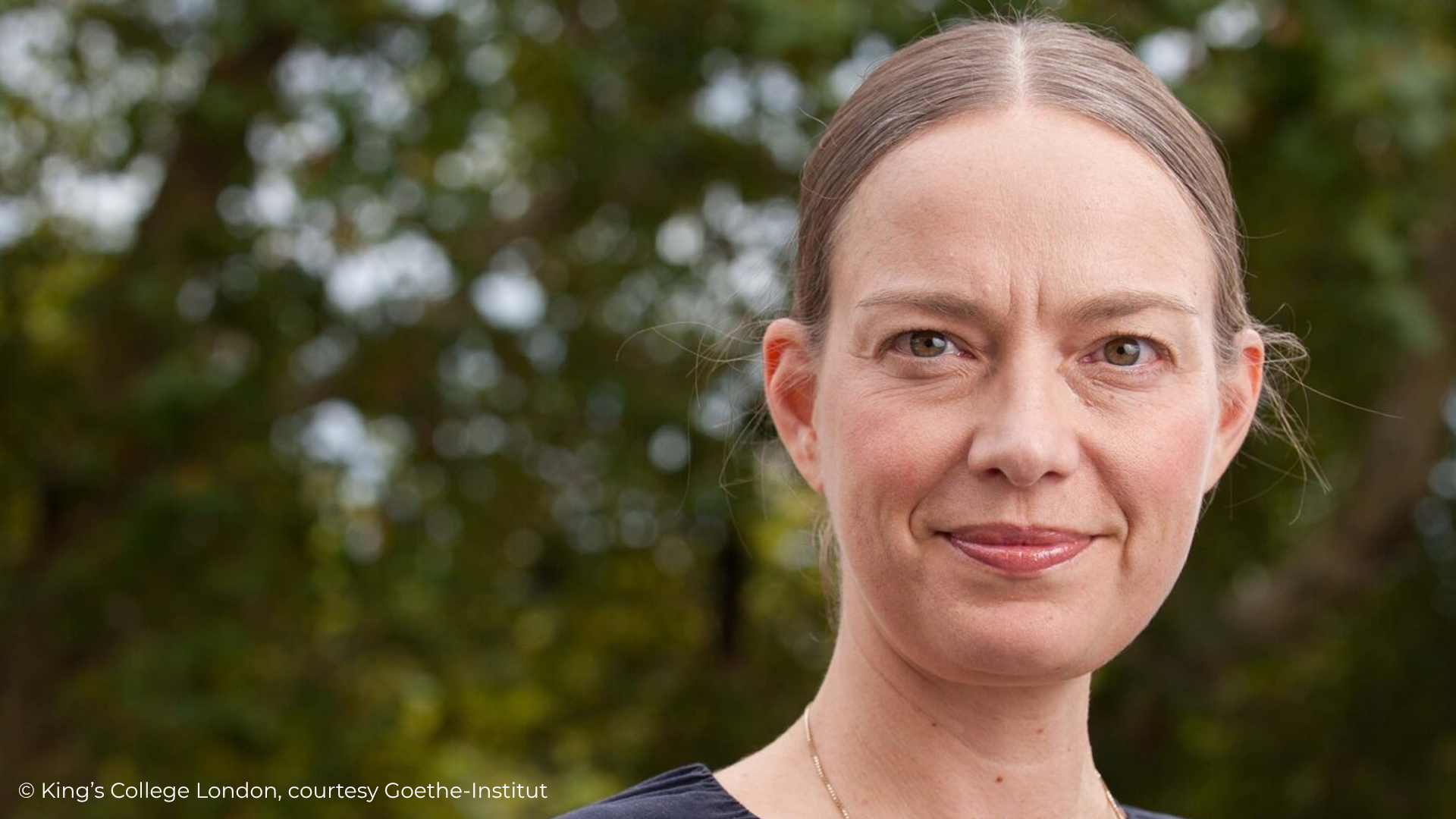The Culture of Artificial Intelligence with Mercedes Bunz
A continuation of the former Brady Lecture series, the Goethe Annual Lecture (GAL) invites renowned speakers to reflect on cultural themes central to the Goethe-Institut’s work and pressing issues facing the UK, Germany, and beyond. As part of the Goethe-Institut London’s 60th anniversary celebrations in 2022, three GAL events were hosted featuring author Mithu Sanyal, academic Mercedes Bunz, and musician Matthew Herbert.
For the November lecture, the Goethe-Institut welcomed Mercedes Bunz, art historian, philosopher, journalist, and Professor in Digital Culture and Society at King’s College London. Bunz is co-director of the Creative AI Lab, a collaboration between King’s College London and the Serpentine Galleries, and her research focuses on the cultural and political impact of digital technology and artificial intelligence.
In her lecture, Bunz explored the particular power of AI systems and the profound human misunderstandings surrounding them. Drawing on the work of contemporary artists and researchers including Memo Atken, Refik Anadol, Stephanie Dinkins, Adam Harvey, and Allison Parrish, she examined how artistic approaches can help us understand how AI ‘calculates meaning’, how it interprets our world and symbols, and how it may transform culture by assisting us with forms of intelligence that are not human.
The talk concluded with a Q&A session moderated by Eva Jäger, Curator of Arts Technologies at the Serpentine Galleries.
About the project
From June 2021 to December 2024, I worked within the Goethe-Institut London’s Communications team. As Online Editor, I managed the UK’s website, social media, editorial budgets, and digital strategies. For the flagship annual event, I oversaw the entire digital production cycle, from strategy and budget planning to post-event content publication. I also hosted and produced a special Talking Culture podcast episode dedicated to promoting the GAL, extending the event’s reach to new audiences through an engaging audio format.
In the early planning phases, I used data tools such as Webtrekk, Meta Business Suite, and Eventbrite Analytics to compile reports evaluating the performance of previous GAL marketing campaigns and digital content. These findings shaped budget allocation and digital strategy for the upcoming event. I also coordinated with partner organisations on cross-promotional initiatives and compiled audience demographic reports that informed communications and content planning.
Once event details were confirmed, I built the event webpage in our custom CMS and devised cross-platform content to promote the lecture. I led all marketing campaigns across newsletters and social media, preparing tailored content to maximise engagement and ticket sales. Other production tasks included collating event texts, speaker biographies, and visual materials; adapting them to our editorial brand guidelines; translating English-language copy into German; publishing content across digital platforms; and distributing media packs to stakeholders.
During the event, I managed community engagement on livestream chats and social media and coordinated the videographer. Post-event, I worked with the videographer to prepare transcripts, ensured content aligned with editorial standards, published the recording on YouTube, promoted it via social media, and processed invoices for advertisements, social media boosts, and commissioned content.
Through this end-to-end process, I ensured the GAL consistently reached wide and diverse audiences while maintaining the Institute’s brand and editorial standards.
